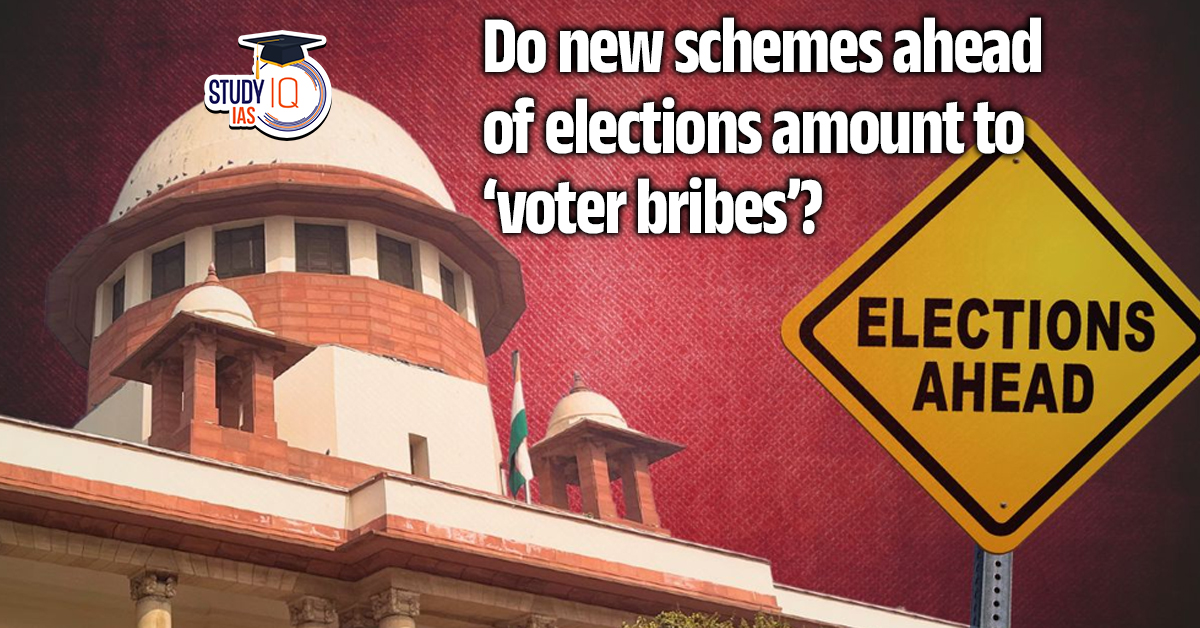Table of Contents
Background
- The Bharatiya Janata Party-led Mahayuti alliance’s landslide victory in Maharashtra’s November 2024 state elections has brought attention to the Mukhyamantri Majhi Ladki Bahin Yojana, a direct benefit transfer (DBT) programme aimed at providing monthly financial assistance of ₹1,500 to poor women.
- Critics argue that such schemes may influence voter behavior unfairly, while experts debate the broader implications of DBT schemes on welfare policies.
Pros and Cons of Mukhyamantri Majhi Ladki Bahin Yojana and Similar DBT Schemes
Pros
- Welfare Benefits for Marginalized Groups: Provides direct financial assistance of ₹1,500 per month to women aged 21–65, particularly those with annual incomes below ₹2.5 lakh.
- Example: Vulnerable women in rural areas welcome these schemes as a critical source of income.
- Economic Relief at Vulnerable Times: Supports objectives like maternity benefits, as seen in the Pradhan Mantri Mathrubhumi Dhana Yojana under the National Food Security Act, which provides ₹6,000 during pregnancy and lactation.
- Bridging Gaps in Welfare Architecture: Addresses the lack of welfare schemes for informal sector workers, such as the unorganized women’s workforce who were historically excluded from maternity benefits (recognized only after the 2013 Food Security Act).
- Political Visibility of Marginalized Issues: Highlights the needs of the underprivileged during elections, which might otherwise remain ignored by policymakers.
- Easier to Implement than Material Transfers: DBTs eliminate some inefficiencies of material-based schemes (e.g., leakages in Public Distribution System).
Cons
- Lack of Long-Term Vision: Focuses on short-term electoral gains rather than establishing robust, long-term welfare systems.
- Risks being perceived as election bribes if announced close to elections.
- Fiscal Trade-offs: Diverts funding from other critical welfare programs.
- Example: Karnataka’s cash transfer budget (₹28,000 crore in 2024-25) is double the Union’s allocation for midday meals.
- Inferior to Employment-Based Programs: Women would earn more through employment programs like MNREGA (₹29,000 annually for 100 days of work) compared to the ₹12,000 received annually under the scheme.
- Weak Implementation and Oversight: Lacks systems for independent evaluation and monitoring, as seen with earlier robust mechanisms like the Planning Commission’s evaluation wing.
- Corruption risks: Middlemen (e.g., banking correspondents) replicate malpractices seen in older schemes.
- Reinforcement of Gender Norms: Paying women for unpaid domestic work may reinforce traditional roles rather than encourage gender equity.
- Example: Employment opportunities are more empowering than cash compensation.
- Nutritional and Educational Trade-offs: Health and nutrition goals could be better achieved through programs like eggs in midday meals or anganwadis.
- Example: North Indian States struggle to meet children’s nutritional needs, which cash transfers may not directly address.
Balanced Perspective
While DBTs address immediate financial vulnerabilities, their utility as a welfare mechanism is diminished by fiscal trade-offs, weak oversight, and lack of systemic reforms. Long-term welfare programs like MNREGA or investments in health and education may yield broader and more sustainable benefits.


 Topological Materials: The Future of Qua...
Topological Materials: The Future of Qua...
 China’s Deep Sea Station in South Chin...
China’s Deep Sea Station in South Chin...
 Project ICE-CRUNCH: India-Switzerland Co...
Project ICE-CRUNCH: India-Switzerland Co...





















